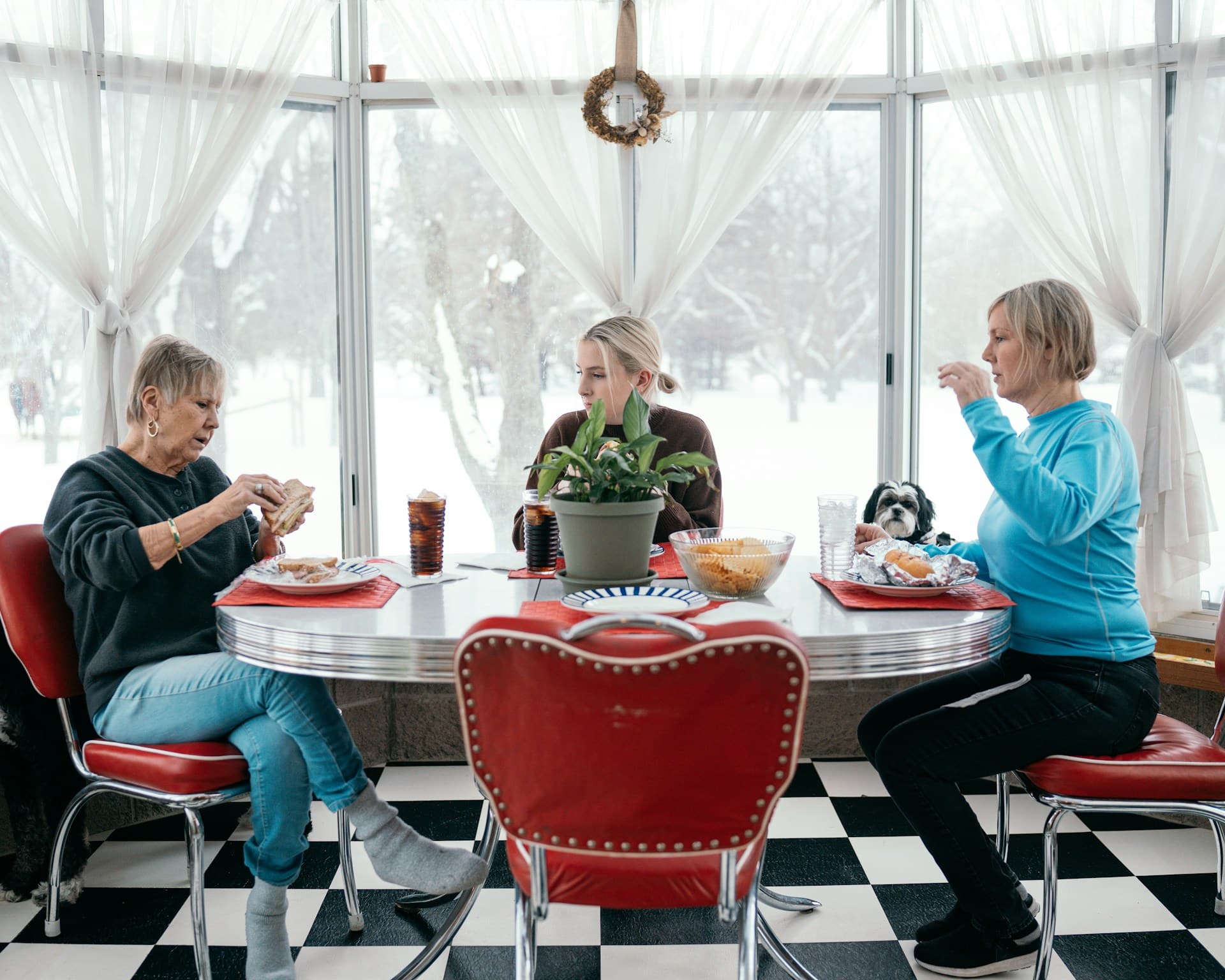As colder months settle in across Little Rock, families with loved ones in nursing homes may start to feel more concerned. While falling leaves and chilly mornings bring a festive shift in seasons, they also bring a new set of safety issues for older adults. Cold weather can have a deep impact on the health and safety of seniors, especially those living in long-term care facilities.
Many elderly residents have health conditions that make it harder for their bodies to adjust to temperature changes. When paired with limited mobility and potential lapses in care, the risks grow more serious. Understanding how to spot these dangers and prevent them can make a big difference in keeping your loved ones safe this winter.
The Impact Of Cold Weather On Elderly Health
Cold weather affects older adults differently. Exposure to low temperatures—even for short periods—can put strain on the body. Certain medical conditions and medications common among nursing home residents make them even more prone to cold-related health problems.
Some of the most common issues linked to cold exposure include:
– Hypothermia: A drop in body temperature that can happen indoors if a room isn’t properly heated. Seniors are especially at risk if they’re wearing light clothes or can’t move around easily to stay warm.
– Frostbite: Less common indoors but still possible if an older adult is exposed to outdoor conditions without enough protection or is kept near drafty, unheated areas.
– Respiratory problems: Cold, dry air can worsen breathing issues like asthma, COPD, or bronchitis, which are common among the elderly.
– Reduced blood flow: Chilly temps cause blood vessels to narrow, making it harder for the heart to pump. This can worsen cardiovascular problems, increasing the risk of stroke or heart failure.
These concerns are especially relevant in places like Little Rock, where winter may not always be extreme but still includes freezing nights and weather that changes quickly. Even if the snow is rare, a sharp drop in temps can affect indoor comfort and resident health more than you’d think.
Preventive Measures
There are a few core steps that help reduce cold-related harm in nursing homes. While every facility should have systems in place by this season, it’s still wise to confirm what’s being done and whether your loved one is truly protected.
Some ways to reduce risk include:
– Keeping all rooms at consistent and safe temperatures. This includes hallways, communal areas, and especially resident rooms. Space heaters should not be used unless absolutely necessary and always should be carefully monitored.
– Making sure residents have access to warm winter clothing. Layers, socks, scarves, and gloves should all be available. Clothing should be easy to put on and not too tight, especially when mobility is a concern.
– Using warm bedding such as fleece blankets, flannel sheets, and quilts.
– Encouraging movement during the day to keep circulation going and body heat up. Physical therapy, walking around the unit, or stretching all help as long as they’re safely supervised.
– Scheduling regular health check-ups or assessments to catch signs of cold stress or worsening health conditions early.
– Checking windows and door seals. Drafts can create cold pockets that heighten risk for those sitting or sleeping nearby.
These steps help create warmer spaces for residents and reduce health triggers caused by things like sudden temperature drops or dry indoor air. Good preventive habits also improve comfort, allowing residents to enjoy seasonal moments—like watching the first winter snowfall—without added concern.
Facility Responsibilities
Every nursing home has a basic duty to protect its residents, especially when harsh weather arrives. That includes keeping indoor temperatures stable and safe even when it gets cold outside. Cold air can sneak in through faulty windows, drafty hallways, or broken HVAC systems. If a facility doesn’t prepare properly, minor maintenance issues can quickly lead to bigger health problems.
Staff training plays a significant part in winter readiness. Caregivers should know the early signs of cold exposure like confusion, shivering, or slowed speech. They also should be alert to equipment failures and able to report and escalate problems without delay. Whether it’s a faulty thermostat or a draft in a resident’s room, someone needs to act fast to keep it from turning into a bigger issue.
Some responsibilities that nursing homes need to meet include:
– Monitoring indoor temperatures regularly, especially in private rooms.
– Scheduling HVAC system inspections ahead of colder months.
– Having backup heat sources that are safe, inspected, and available in case of power outages.
– Ensuring emergency plans are up to date and clearly shared with staff, including evacuation routes and chain-of-command.
– Training staff on winter-related risks and how to reduce the chance of cold-related injuries.
When nursing homes meet these responsibilities, families feel more confident that their loved ones will stay comfortable and safe. For a community like Little Rock, where winter storms can still create dangerous conditions, every layer of preparation helps reduce the risk of neglect.
How Families Can Get Involved
Winter safety isn’t just a job for the nursing home staff. Families have important roles, too. Cold weather can make residents more alone or less active, especially if outdoor visits stop for the season. This distance can make it harder to notice small health or comfort changes.
Families can support their loved ones in a few helpful ways:
– Ask direct questions about whether their room feels warm at different times of day. Also ask if they feel colder than usual or need extra blankets.
– Deliver or send warm clothing like thermal socks, hats, scarves, or even cozy slippers.
– If an in-person visit isn’t possible, schedule video check-ins to see how your loved one looks and sounds.
– Ask staff about the facility’s cold weather protocols and what has been done to prepare.
– Report any red flags immediately, like chattering teeth, slow reactions, dry skin, confusion, or complaints of being cold.
– Share comfort items if allowed, such as hot drinks, heated blankets with timers, or seasonal activities that keep them engaged and warm.
When families stay connected and ask questions, it becomes easier to catch problems early. Keeping the lines of communication open with both staff and loved ones plays a key part in spotting gaps that could leave someone vulnerable during winter.
How a Nursing Home Lawyer Can Help
Sometimes, even despite your efforts and regular conversations with the facility, things still go wrong. If you believe your loved one may have been harmed due to cold exposure, delays in care, or an unresolved heating issue, it might be time to consider getting help.
A nursing home lawyer reviews what happened and helps determine if the facility took the right steps. That could include looking at maintenance logs, reviewing care reports, or questioning whether the response to cold weather concerns was timely and responsible.
Signs that legal guidance may be needed include:
– Heating system failures that linger without proper repair.
– A resident develops hypothermia or another cold-related illness while in care.
– There was little or no supervision during outdoor activities or cold-weather outings.
– Staff ignored repeated requests about drafty rooms or cold symptoms.
– There are patterns of neglect or repeated issues that suggest poor winter care planning.
Families don’t need to have every answer. What matters is acting when you feel like your concerns are not being taken seriously or when signs of harm become clear.
Protecting Your Loved Ones During Winter
Winter in Little Rock doesn’t need to be extreme to carry risks for nursing home residents. A slight delay in repairs, poor ventilation, or an overworked staff can create situations where seniors suffer. Every small decision, from checking a window seal to scheduling a wellness visit, plays a role in prevention.
Families, caregivers, and administrators can all work together to ensure seniors stay warm, safe, and cared for during colder months. If something ever feels off, trusts your gut. Ask questions, check in often, speak up early, and know when it’s time to get support for your loved one. A little extra attention now can prevent much bigger problems later.
If you’re worried about the safety of your loved ones during the colder months or suspect any negligence in their care, speaking with a trusted nursing home lawyer in Little Rock could help you understand what steps to take next. The Law Office of Thomas G. Buchanan is here to support families who want to make sure their loved ones are well cared for, no matter the season.

